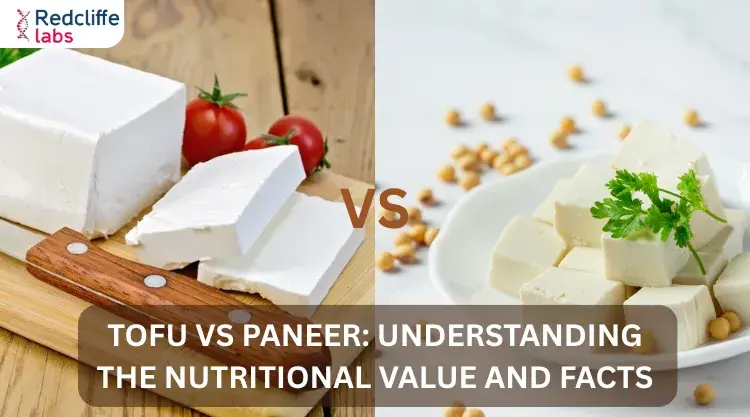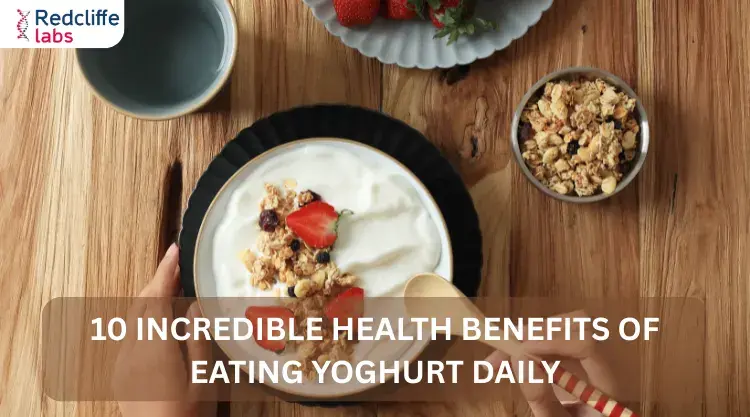Protein in Sprouts: Nutritional Value, Health Benefits, and More

Medically Reviewed By
Prof. Ashok Rattan
Written By Kirti Saxena
on Jan 10, 2025
Last Edit Made By Kirti Saxena
on Jul 19, 2025

Sprouts are often called "superfoods" due to their nutritional profile and health benefits. These tiny sprouts are rich in antioxidants and reduce antinutrients. These little sprouts offer multiple health benefits; they are rich in antioxidants, reduce antinutrients, improve blood sugar levels and anemia, and lower the risk of heart-related diseases and congenital disabilities. Rich in plant-based protein, they are particularly beneficial for vegetarians and vegans seeking alternative protein sources. They are a powerhouse of essential nutrients, including protein, fiber, vitamins, and minerals, which makes them an excellent addition to a balanced diet. Here in this blog, let's explore more about the nutritional value of sprouts, their health benefits, and how to add them to your daily routine safely and effectively.
Nutritional Value in Sprouts
Here is the Sprout's nutritional value per 100g
| Nutrient | Amount per 100g |
| Calories | 30-40 kcal |
| Protein | 3-6 g |
| Carbohydrates | 6-8 g |
| Fiber | 1.5-2 g |
| Vitamins | |
| Vitamin C | 20-30 mg |
| Vitamin A | 15-20 IU |
| Vitamin K | 15-30 mcg |
| Minerals | |
| Calcium | 30-40 mg |
| Iron | 1-2 mg |
| Magnesium | 15-20 mg |
| Potassium | 150-200 mg |
| Other Components | |
| Folate | 20-30 mcg |
| Phosphorus | 60-80 mg |
Read more here: How Much Protein Does the Human Body Need Per Day?
Health Benefits of Eating Sprouts Daily
Protein foods offer varied health benefits. Studies show that high protein intakes result in quicker fat loss. These healthy sprouts are packed with many proteins; a cup of sprouts contains 14 grams of proteins. Adding protein to sprouts can have many advantages-
Cancer Prevention
Protein in sprouts helps to reduce the risk of cancer. Studies have shown that the nutrients in sprouts can restrict the growth of cancer cells, including breast cancer, leukemia, and digestive system cancers.
Supports Muscle Growth and Repair
Sprouts, especially moong beans and chickpeas, are high in protein, which helps build and repair muscles. Protein is important for muscle growth, and sprouts are a natural source.
Aids in Digestion
Sprouts are an ideal source of dietary fiber, which promotes regular bowel movements and aids digestion. The fiber helps bulk up stool, preventing constipation and supporting healthy gut function. It also helps clean the colon.
Strengthens Immunity
Sprouts are powerful immune boosters containing many vitamins, minerals, and antioxidants. Vitamin C, in particular, helps boost the immune system and lower the risk of infections and common illnesses.
Improves Heart Health
Sprouts can help to improve heart health by reducing cholesterol levels and lowering blood pressure. The fiber, antioxidants, and potassium content in sprouts work together to reduce the risk of heart disease and improve overall cardiovascular health. Studies show that sprouts help to reduce unhealthy or low-density lipoprotein (LDL) cholesterol in diabetic patients, which may cause a buildup of artery-clogging plaque. The sprouts also increase the healthy high-density lipoprotein (HDL) cholesterol, which helps to clear fatty deposits from your blood. Studies also suggest that sprouts can lower triglyceride levels. High triglycerides can cause heart disease if they build up in high enough concentrations.
Controls Inflammation
Studies show that sprouts help regulate chemicals involved in immune reactions. This lowers inflammation, helps prevent autoimmune disorders and certain cancers, and helps manage obesity and diabetes.
Promotes Healthy Skin
Want clear and healthy skin? Why not add healthy sprouts to your diet? The protein in sprouts is a combination of vitamin C, antioxidants, and minerals that promote healthy, glowing skin. They are also rich in antioxidants that help fight off free radical damage, while vitamins like Vitamin C support collagen production for skin elasticity.
Good For Weight Loss
As mentioned earlier, sprouts contain low calories and high fiber and protein, which helps with weight management. Protein curbs hunger and promotes feelings of fullness for longer, while fiber helps digestion, prevents constipation-like issues and promotes satiety.
Balances Blood Sugar Levels
Legumes sprouts have a low glycemic index, which is good for people with diabetes. If you or any of your loved ones have diabetes, you must add sprouts to your meals to regulate blood sugar levels. This makes protein sprouts ideal for diabetic or prediabetic patients or those at risk of developing the condition.
Types of Sprouts
There are different types of sprouts, each with unique flavor and nutritional benefits. Here are some of the most popular ones:
- Mung Bean Sprouts—Mung bean sprouts are rich in protein, folate, iron, fiber, and Vitamin C, making them a great addition to salads, soups, and stir-fries. They contain 28% protein per serving.
- Lentil Sprouts—They are rich in protein and fiber, making them ideal for vegetarians and vegans.
- Kidney Bean sprouts- They are low in calories and high in protein. They are also rich in iron, folate, and vitamin C.
- Chickpea Sprouts are high in protein, fiber, and crucial minerals such as iron and magnesium.
- Radish Sprouts—Similar to radishes, Radish sprouts are spicy and flavorful. They are rich in folate, Vitamin C, and potassium and can be added to salads or used as garnish for various dishes.
- Peas sprouts—Peas sprouts are high in protein and carbohydrates and low in fat. They provide double the amount of vitamin B9 or folate than uncooked peas.
Also read: Rajma protein per 100 grams: Nutrition Facts, Health Benefits, and More!
How to Prepare Sprouts?
Preparing sprouts at home is easy and cost-effective. Here's a simple guide:
- Soak the Beans/Lentils
Start by soaking your beans (such as mung beans or chickpeas) in water for 8–12 hours
- Drain and Rinse
After soaking, drain the excess water and rinse the sprouts thoroughly. Transfer them to a clean jar or sprouting tray and close it tightly.
- Rinse and Drain Daily
Rinse the beans with fresh water 2-3 times a day. They will sprout after 2-3 days.
- Enjoy Your Fresh Sprouts
Once the sprouts have grown, they are ready to be eaten. You can store them in the refrigerator for up to a week.
How to Eat Sprouts?
You can eat sprouts in any way you love; there is no special formula or recipe for making sprouts. Here are some simple ways to add sprouts to your meals.
- Enjoy with salads—Protein-rich sprouts are a great addition to salads. They add a refreshing crunch and a boost of nutrients. Mix mung bean or lentil sprouts with leafy greens, tomatoes, and cucumbers for a healthy meal.
- Add them to your sandwiches and wraps. You can add sprouts as a filling to sandwiches or wraps. Layer them with avocado, tomatoes, lettuce, and lean protein for a delicious and nutritious lunch.
- Stir-Fry Them—Stir-fry sprouts with vegetables, tofu, or any other vegetable you like, and enjoy a healthy and tasty meal.
- Top Your Smoothies: For an extra nutritional boost, Add a small handful of sprouts, such as beans or lentils, to your smoothies.
Also Read: Best Protein-Rich Food for Vegetarians
How to Eat Sprouts Safely?
Eating sprouts has many health benefits, but consuming them safely is important to avoid foodborne illnesses. Raw sprouts are susceptible to contamination from harmful bacteria such as Salmonella or E. coli. Here are a few tips for eating sprouts safely:
- Gently scrub and wash the sprouts daily to remove contaminants.
- You can also cook the sprouts a little to reduce the risk of bacterial contamination. You can stir-fry sprouts to make them safer to eat.
- Store sprouts in the refrigerator or cool or dark place and consume them within a few days.
- If pregnant, avoid eating raw sprouts, which might contain bacteria. Rather, cook them and enjoy
The Final Words
Sprouting is a natural process that enhances protein and other nutrients. Healthy sprouts offer multiple health benefits, such as improved blood sugar levels, reduced risk of anemia and heart disease, reduced menopausal symptoms, and more.
However, follow the precautions outlined in this blog and enjoy the nutritional benefits of sprouts. You can eat them raw or cooked or add them to your favorite dishes.



